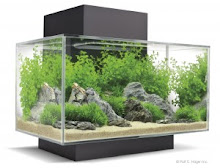Water circulation is vital in any aquarium, to make certain proper filtration, avoid the formation of anoxic or low-temperature regions, and deliver nutrients to stationary organisms. Power heads and aerators generally offer adequate circulation for a standard aquarium. In a planted aquarium, still, the water surface should certainly be left undisturbed as considerably as feasible to avoid loss of precious carbon dioxide and such devices should really not be employed.
Water pumps give the crucial circulation both within the tank and by means of the filtration technique, with no unnecessary gas exchange. In a common planted aquarium, water flows passively to the pump from a submerged intake where it is then propelled through the filter(s), and returned to the tank via an outlet beneath the water surface. The function of a water pump in a planted aquarium is precisely the exact same as that of the heart in the human body: pumping water rather than blood via a filter instead of the kidneys and liver. This analogy underscores the crucial significance of the water pump in sustaining the well being of a planted aquarium.
Not surprisingly, there are several sorts of aquarium water pumps to opt for from, suitable for numerous kinds of tanks and budgets (see our selection at Julie's Pet Market). Even though maybe not a glamorous portion of setting up a planted aquarium, the selection of a water pump is one of the most vital tasks to ensure a profitable encounter. Many criteria must be considered.
1) Flow rate. Water pump flows are rated in gallons per hour (gph) below absolutely free-flow conditions. For example, a 100 gph pump will circulate all the water in a 50 gallon tank twice in an hour. The presence of a filter (and its condition) will minimize actual flow. It is significant to pick a pump with sufficient flow to make certain proper filtration. Conversely, an excessive water flow will turn your tank into a chaotic whirlpool. Ordinarily, the filter manufacturer will specify the minimum flow rate required for the water pump. The selected pump will need to exceed the minimum flow rate, but be comparable to it
2) Durability. A water pump is one of the few devices with moving parts in an aquarium, and hence topic to wear and tear. Some pumps (e.g. magnetic drive) are developed with out internal seals that can grow to be corroded. This is much more critical for saltwater tanks, but properly worth thinking about for a planted aquarium.
3) Heat generation. The electric motor generates heat that is transmitted to the water. Too significantly heat may contribute to wear and tear and is undesirable when you require to keep water temperature below a particular level.
four) Energy consumption. A pump operates continuously and along with lights it is one of the major contributors to the power costs of a planted aquarium. Prefer pumps with lower energy demands to keep costs down.
five) Noise level. Unless the pump will operate totally immersed, noise from the water pump is not to be underestimated as a factor in the enjoyment of your planted aquarium. You can typically uncover information and facts on noise levels on the manufacturer's internet web site.
In common, you will need to pick the ideal good quality pump you can afford. There are fewer sources of headaches in an aquarium worse than a poor pump: noise, overheating, and leakages occurring at the least handy time can send you scrambling for a replacement. Having to replace a faulty pump - even with another poor 1 - following just a few months of operation makes this choice a false economy. The choice of water pumps offered at Julie's Pet Market place consists of only good quality merchandise to stay clear of you such problems.

